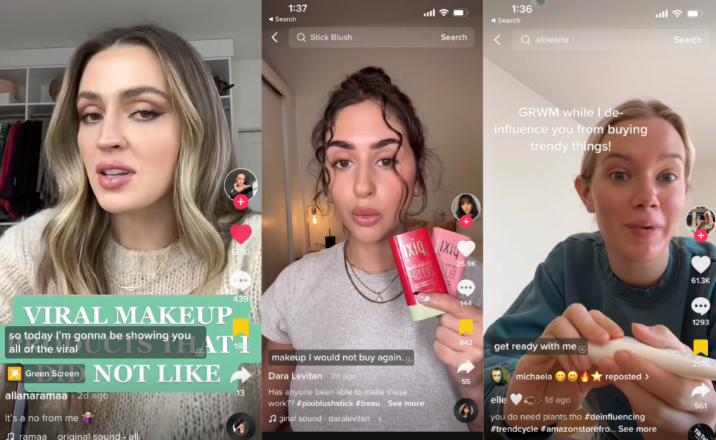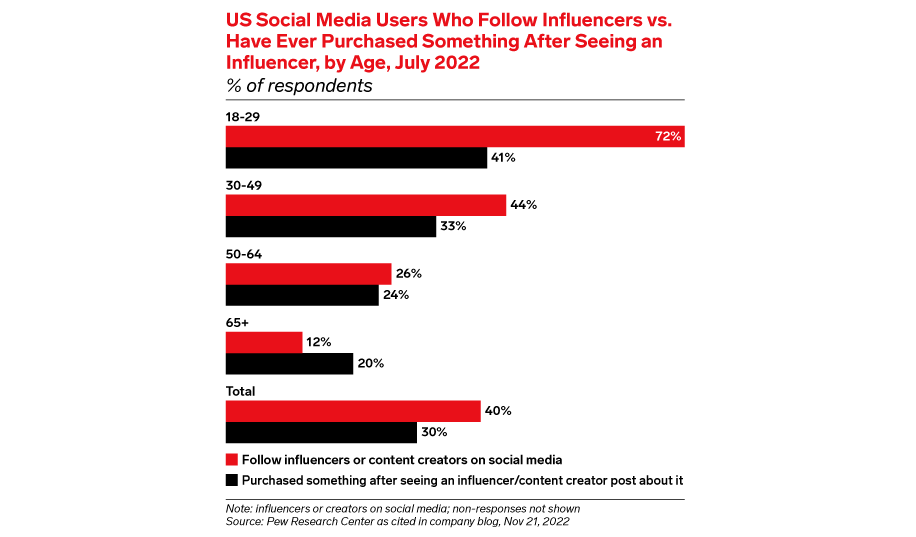The Rise of Deinfluencing on Social Media
- A majority of British consumers have lost trust in influencers motivated by commercial gain.
- TikTok has seen a surge in #deinfluencing videos with over 206.5 million views.
- Authenticity and relatability are key factors driving Gen Z and millennial consumers' preference for social media influencers.
For years, influencers have held significant power in the marketing world. However, a new trend called "deinfluencing" is challenging their dominance, particularly on the popular platform TikTok. Unlike traditional influencer marketing, deinfluencing involves TikTok creators actively discouraging their followers from purchasing certain products or supporting certain brands. It is a response to the growing skepticism among consumers towards influencers motivated solely by commercial gain.
The Loss of Trust in Influencers
According to research from an influencer marketing platform, a staggering 64% of British consumers have lost trust in influencers who are driven by commercial gain. As a result, authenticity and credibility have become crucial factors in influencer marketing. Alex Carapiet, the head of social at Seed, emphasizes the importance of authenticity in this industry overwhelmed by individuals seeking to become influencers and brands seeking to leverage their influence.
With the deinfluencing trend gaining traction on TikTok, it has amassed over 52 billion views. This significant engagement highlights the growing discontent among consumers and their desire for more genuine content.

TikTok creators embracing deinfluencing
Controversies surrounding influencers promoting products they do not use or believe in have fueled the deinfluencing trend. For instance, influencer Mikayla Nogueira faced backlash after posting a dishonest review of a mascara product. The hashtag #deinfluencing had garnered over 206.5 million views on TikTok, indicating a growing disapproval of inauthentic influencer content.
The Implications for Marketers
Marketers now face the challenge of adapting to the evolving landscape of influencer marketing due to the rising popularity of deinfluencing. They must prioritize building long-term relationships with influencers who align with their brand values and resonate with their target audience. To rebuild consumer trust, brands should emphasize transparency and ethical practices in their influencer marketing campaigns.

41% of US Gen Z consumers make purchases based on creator content
Research by Cassandra reveals that Gen Z and millennial consumers prefer following social media influencers who they perceive as authentic and relatable. A significant 89% of young consumers value influencers who come across as nice individuals, while 86% do not want influencers solely focused on sales. The deinfluencing trend underscores the need for transparency and ethical practices in influencer marketing. Brands must establish genuine connections with influencers and their audiences by aligning with their values.
Exploring Alternatives for Mobile Marketers
In light of the challenges faced by social media marketing, mobile marketers must consider alternative channels for their campaigns.
FoxData offers a comprehensive intelligent marketing platform that provides various solutions, including
Digital Marketing, Content Marketing,
Design & Creatives,
Game Publishing, and
ASO service. Visit FoxData to learn more about how to drive success in your mobile marketing strategies.
All content, layout and frame code of all FoxData blog sections belong to the original content and technical team, all reproduction and references need to indicate the source and link in the obvious position, otherwise legal responsibility will be pursued.

 TikTok creators embracing deinfluencing
TikTok creators embracing deinfluencing 41% of US Gen Z consumers make purchases based on creator content
41% of US Gen Z consumers make purchases based on creator content